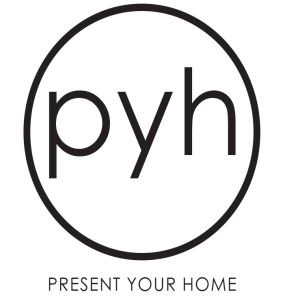Episodes

Thursday Jul 02, 2020
Thursday Jul 02, 2020
Today we have Anthony Elbaum - owner of Cableman, an award-winning customised home and business installation company of home technology and automation.
More and more homes are now being equipped with hi-tech gadgetry that are either portable or wired into the home. Technology can date as quickly as you buy it, but some things actually add value, create comfort and give you the opportunity to live your lifestyle the way you want. Anthony Elbaum is going to talk to us about what buyers are looking for when checking out the technology in your home.
Founding director and owner of Cableman, Anthony Elbaum is one of Australia's most experienced and awarded home technology and automation specialists. Anthony was a Communications Technician in the Royal Australian Navy for 10 years, and is now, the successful business owner of Cableman. He also works as an active and passive director of several real estate developments, so he knows exactly what people want in their homes.
1.When it comes to typical automation in your home, you're looking at security systems with surveillance, app driven climate control, cabled internet and networked screens. But some go as far as automated window furnishings and sensor or app-driven lighting and music systems, is there anything else that seems to be popular as we go into the 2020s?
2. What technology is becoming more acceptable in our every day Australian homes?
3. When people look to add technology into their home, what should they be looking for in terms of how they live their lives, and how they will recuperated the money at re-sale?
4. Typically, what type of buyers are wanting hi-tech gadgetry when they look at purchasing a new home? How is that changing from say 10-15 years ago?
5. Over 50s generally have more disposable income, and want the best they can buy, what are the 50-plus age group now wanting in their homes?
6. Now that we are almost out of Covid-19, have you seen an on-surge of people wanting new technology in their homes? What are they wanting?
7. What type of home-needs can be controlled by an app?
8. If you want to smart-wire an existing 4 bedroom home, what would we expect to pay for heating, cooling, window furnishings, lights, television, gas fireplaces, security, outdoor spas, garden lighting and irrigation, to all be automated?
9. 10-15 years ago, people were spending $15,000 to pre-wire a home with CAT-5 cabling, for hard-wired internet throughout the home. Then Wi-Fi became popular, and people were saying cabling was a waste of money, or was it? As people get more screens in their homes, Wi-Fi has it's own limitations, so are we making a comeback to hard-wired cable? Has it become cheaper? Is it better to do it when you build a home, rather than try getting it through an existing home?
10. What building materials make it hard for people to access Wi-Fi?
11. What are the more extravagant automation requirements a client has asked for?
12. How should we be choosing our technology supplier? How should we be reading the quote when we receive it?
13. Do you see particular technologies becoming mandatory in brand new home builds in the future, similar to how water tanks or solar hot water became mandatory with the energy efficiency initiative?
Anthony Elbaum, can be contacted through his website: www.cableman.com.au

Thursday Jun 25, 2020
Episode 24 - Frank Perry: Understand Council Zones
Thursday Jun 25, 2020
Thursday Jun 25, 2020
Council zones are confusing. If you're looking to build, extend, subdivide or redevelop, there's a lot you need to know about deciphering where and what you can build to change the streetscape. Today we have Frank Perry from townplanning.com.au to help us get it right.
Frank Perry is a senior member of the Planning Profession in Victoria, and has wide experience in both the private and public sectors, having worked in senior levels in State and Local Government. The breadth of his experience encompasses medium density housing assignments to high rise apartment developments, shopping centres and large estate planning and subdivisions. Frank Perry is also experienced in securing changes to planning controls to enable new development in areas where development was previously prohibited. Welcome Frank!
1. How does the Victorian government plan how to zone the suburbs?
2.Can you explain to us the planning system and how it affects every property in the State?
3. What's the different between a zone and an overlay?
a) can you tell us the different types of zones?
b) and overlays?
c) are covenants the same as overlays?
4. Where can we find out what zone our property or the property we are looking to buy actually is in?
5. Peter from Hoppers Crossing is wanting to buy property for his first development. He wants to know what are the best residential zones for him to look for?
6. Conversely, if a home buyer is looking to make sure they don't want to get lost in a sea of over-development, what zones should we be looking for?
7. What happens if our property is zoned 'green wedge', which usually means a substantial amount of land... what can we do with it?
8. Explain to us how the decisions are made when applying for a planning approval?
9. What rights do developers have to appeal against the council decisions?
10. Can municipal councils and shires change the zones, or is it a State Government authority?
11. How have you been able to change planning controls to enable new development?
Frank Perry is from townplanning.com.au and provides an extensive website that enables anyone to find out all facets of a property, from zones, ownership, renovations and planning. Email Frank at frankp@townplanning.com.au for more information about this exciting portal. Otherwise, he has a consulting business town-planning.com.au if you would like Frank to help you with your planning needs.

Thursday Jun 18, 2020
Episode 23: Josh Hommelhoff - The Pros and Cons of Short and Long Settlements
Thursday Jun 18, 2020
Thursday Jun 18, 2020
The settlement of a property can make or break the buying and selling process. For some, it could mean bridging finance, for others, it might mean renting something for the short term. No matter what, it can cost if it all goes wrong. Settlement terms are always one of the deciding factors that could mean that the property is sold to you, or maybe someone else. We have Josh Hommelhoff from Ray White Carnegie to give us the know how on what's the good, the bad and the ugly in terms of property settlements.
1. What is a settlement?
2. What is the average length of a settlement?
3. What do we need to achieve in a settlement?
4. What are the pros and cons of a short settlement?
a) how quickly can a settlement occur, knowing how much needs to be done to get the settlement through?
b) why would buyers or sellers choose a short settlement?
c) do you have any examples of a short settlement?
5. What are the pros and cons of a long settlement?
a) can long settlements have additional terms, like more deposit or more repayments?
b) can long term settlements be for years, not months?
c) why would buyers choose a long settlement?
d) do you have any examples of a long settlement?
6. Should we ensure that the seller's terms suit your terms, as the buyer, before giving your offer/bid, especially at auction?
a) what happens if you are the final bidder and you then want to negotiate different settlement terms?
7. How can we ensure that the property settles properly on the right day?
8. How common is it that the settlement date is changed from that that was orginally on the contract?
Josh Hommelhoff is from Ray White Carnegie, and can be contacted on 9571 6777.
PS: The wine that Josh talks about in Sue's Quick Quiz is Little Giant by McLaren Vale Grenache. Apparently its a great drop! Photo will appear on Facebook and Instagram.

Thursday Jun 11, 2020
Episode 22: Glenn McGrath - Styling Do's and Don't's
Thursday Jun 11, 2020
Thursday Jun 11, 2020
Glenn McGrath from Present Your Home is here to talk to us about Styling Do's and Don't's.
Glenn McGrath has headed a successful pre-auction service business that has evolved from property maintenance to styling over the past 20 years, called 'Present Your Home'. He passionately developed the business to help Melbourne home owners achieve exceptional sale prices for their homes or investment properties. He's here today to talk to us about the 'Do's and Don't's in Property Styling.'
1. Why should I style my home?
2. Is it better to style or do some minor renovations, if you could only afford one?
3. What's the best way to style a kitchen? What shouldn't we be doing?
4. How about a bedroom? Where do people get it wrong?
5. Living spaces are generally 'money rooms' what should we be doing? Is it better to have one room really stand out and make the other living areas less impactful?
6. Everyone loves an outdoor lifestyle, what should we be doing to maximise our alfresco spaces? What are some of the disasters you've seen?
7. Chantal from Cheltenham has a plain white bathroom, what's the best way to dress it up?
8. What's the best way to show off your entrance hall and front garden? What shouldn't we be doing?
9. How do we go about getting tenanted properties ready for sale?
10. Is it OK to store all your belongings in the garage or shed a the property, and keep it locked for inspections?
11. Karyn from Altona wants to know if she can live in the house that she gets styled? What's the general etiquette in terms of keeping everything looking good? What happens if the rental furniture gets damaged?
12. Have you ever done a property that wasn't styled, ie left vacant, or had mix match furniture in it, that struggled to sell, and then asked to style it? Did it get sold?
Present Your Home is offering listeners 15% off the quoted price to get your property styled with them, if they mention the Real Estate Right Podcast. Contact Glenn on 0419 307 802 or through their website presentyourhome.com.au

Thursday Jun 04, 2020
Episode 21: Grant Kennedy - How To Help in Your Photo Shoot
Thursday Jun 04, 2020
Thursday Jun 04, 2020
Real Estate Right host Grant Kennedy talks to us about how to help your photographer before you have your photo shoot.
Photographt is one of the first impressions a buyer has when you sell your home. And photography can make or break a sale. If the photos aren't good, you're not going to get the enquiry, it's as simple as that. So, how can you help to make your photo shoot seamless for the photographer? We will find out how, with resident host of Real Estate Rigiht, Grant Kennedy, also renowned for being a leading photographer throughout Melbourne, with his business, We Shoot Buildings.
1. What do you think is the percentage of properties that you still have to clean up, style with what's there or avoid touching?
2. What are some things that vendors, tenants and agents can do to prepare a home for a photo shoot?
3. Do you have to prepare every room for a photo shoot?
4. Sometimes owners forget the smaller things, that make a photo shoot, what are some things that would be really helpful before you arrive?
5. If we are running out of time, and you know your photographer is coming in the next half hour, what are some things you don't need to worry about getting ready?
6. If you're doing your own styling, what are some hot tips to make your photos look good?
7. If you haven't the money for styling and the house is vacant, what are some alternatives that a photographer can do to make the property look good?
8. What about the exterior? What can we do to help the exterior look good in the photos?
9.Different photographers do different things - some take dusk photos, some add dusk lighting in, some ask for lights on, some for lights off. Explain the difference.
10. What are other visual opportunities agents are using to market properties?

Friday May 29, 2020
Episode 20: Chris Walsh - Buying in a Partnership Part 2
Friday May 29, 2020
Friday May 29, 2020
Chris Walsh from Walsh Conveyancing gives us an understanding of what to expect when buying in a partnership.
1. What happens when the partners want to dissolve the partnership, and haven' agreed on the sale price of the property, with one party not prepared to sign at auction?
2. You hear stories about people putting the property in their wife's name, how does that work?
3. Sam from Croydon has a listener question about using 'joint funds' but buying a property in her own name.
4. Chris tells us of some situations she's needed to deal with.
Chris Walsh has an offer to listeners of Real Estate Right. Quote "POD", when requesting to use Walsh Conveyancing services to get a 10% discount off her professional services. Contact Chris on 5977 5111 or walshconveyancing.com.au

Thursday May 28, 2020
Episode 20: Chris Walsh - Buying in a Partnership (Part 1)
Thursday May 28, 2020
Thursday May 28, 2020
Chris Walsh, from Walsh Conveyancing in Somerville comes in to talk to us about buying in a partnership.
Buying in a partnership comes in all forms - siblings, Family Trust, business partners, divorced couples, parents and child, it's not just your loving other. And when an outside comes in, like a new spouse, or even if one of the partners die, complications can come in which can add new dimensions to the original contract. Today we talk about what we need to look for when buying in a partnership.
Chris Walsh is a well respected member of the Conveyancing fraternity. Her career spans more than 28 years in the legal profession, including 18 years in her own business. She's the Director of Walsh Conveyancing, Somerville, and prides herself on providing all her clients with a supportive, informed 'warm and fuzzy' conveyancing service, when people buy, sell and transfer real estate in the State of Victoria.
1. What's the legal terms of the type of owners you can be when buying a property in a partnership?
2. What are the pros and cons of : a) tenants in common, b) joint tenants
3. Does it matter is you're married, business partners, de facto, siblings, parent/child? Are the rules still the same?
4. What are the legal differences between buying as a person versus buying in a company or trust?
5. If the partnership falls apart, or you choose to sell the property, how do funds get divided in each situation?
Tune in tomorrow for Chris' more in-depth account of buying in a partnership and to listen out for Chris' offer to Real Estate Right listeners.
www.walshconveyancing.com.au

Thursday May 21, 2020
Episode 19: Nicole Jacobs - What's A Vendor's Advocate
Thursday May 21, 2020
Thursday May 21, 2020
Vendor's Advocate's - What do they do? Nicole Jacobs from Nicole Jacobs Property is back to talk to us about the other side - vendor advocacy, and how a vendor advocate can assist you in selling your home.
A 'Vendor' is the same as a 'Seller' - vendor is an industry term, seller is a general public term.
What is a vendor's advocate?
Are vendor advocates the 'arched enemy' of the real estate agent? Are you there to keep them honest in their education to the seller?
Why is it worth getting a vendor advocate in?
How much of the selling process to you do?
Does that include helping update the house to get it ready for sale and other things beyond what a real estate agent might do?
How do you help save vendors money?
How are you paid? Commission? Flat Rate? Will it cost the vendor more to use your services?
Do you inform the vendor about how the sale is going, or does the agent do that?
Are there only certain agents you work with?
Martin from Mitcham wants to know, How do I know that I'm getting the best agent for me and my circumstances?
What type of person or entity would be your main clients?
What happens if the house doesn't sell? Do you still get paid?
Clancy from Surrey Hills is worried that she will be paying more money in advertising than she needs to. Do you make sure that the advertising the agent wants the seller to do is what the should be doing?
Are there any hidden fees that the seller should be worried about?
Nicole Jacobs has given us one of her best-selling books 'Sold' to give to one lucky listener. Go to Facebook or Instagram, like our competition, and tell us why you love Real Estate Right to be in the running. Winner will be announced: 31st May 2020.

Thursday May 14, 2020
Thursday May 14, 2020
Frank Valentic, from Advantage Property Consulting, sets us straight on how to know when we are in a buyer's market and a seller's market.
1. How do we know it’s a seller’s market?
2. How do we know when it’s a buyer’s market?
3. Is there a middle ground where both buyers and sellers can take advantage of the marketplace?
4. Are there different markets happening in different suburbs, or styles of properties going on at the same time? Like apartments might be slow to sell, but family homes are having run away auctions?
5. What are the best ways buyers and sellers can take advantage of the market that’s in their favour?
6. Cindy from Richmond has found a gorgeous 2 bedroom apartment that she just has to have. But every time she’s inspected it (and yes, she’s been to every single open for inspection), she’s seen at least 2 or 3 people looking at the contracts that have been displayed on the kitchen bench. She’s worried she’s going to have too much competition, but she loves the apartment so much, she’ll do anything to get it. What’s your advice on buying it at auction versus putting an offer in prior?
7. If you need to sell in a buyer’s market, what would be your recommended method of sale?
8. Sometimes you hear people say ‘the market is going to be better next year, or i’d better sell now as it’s going to do a turn next year…’ what is your advice on people trying to time the market?
9. How do you assess if the market has peaked or bottomed out?
Offer: Frank will offer a 10% discount off his buying advocacy, vendor advocacy or property management fees, to one lucky listener who likes, shares and comments on our Facebook or Instagram link.

Thursday May 07, 2020
Episode 17: Tania Bell - Demolishing with a Purpose to Re-Purpose
Thursday May 07, 2020
Thursday May 07, 2020
Tania Bell, from Green Room Interiors, is on this episode to tell us how we can demolish a house with the purpose of re-purposing.
So many houses get demolished for the sake of rebuilding or redeveloping. As the world becomes more environmentally conscious, you have to think, there has to be a better way to demolish houses than to put it all into landfill. Today we discuss how we can think outside the square to save money, save materials and save the planet.
Tania Bell is an award winning interior decorator and designer, design writer, mentor and business owner. With over 16 years experience in the design industry, Tania has seen it all and is able to use her knowledge and experience to design and decorate any type of home from the ultra-modern to the fun and retro.
1. When you buy a house for the land, what should we be looking for in terms of things you can salvage to then either re-purpose into the new build or on-sell?
2. What sort of percentage of home sites can be repurposed/recycled when demolishing a home?
3. Do we get to keep the items that we believe are salvageable or do demolition companies take them?
4. If we are demolishing a home to repurpose, you would need to demolish it manually, which would be more time intensive than mechanically, do demolition companies reduce the fee if they salvage to keep the items?
5. What should we be looking to salvage?
6. What really can't be salvaged?
7. There are some old school trades that are slowly dying. What can we do to keep these types of professionals in their job?
8. What are types of trades are there that help with repurposed or recycled products?
9. Besides saving the environment, what are the financial benefits of repurposing the old when it comes to building new?
SPECIAL OFFER: 25% off Tania's "Ask the Design Expert" consultation through Green Room Interiors. Look up Green Room Interiors on Instagram, info@greenroominteriors.com.au or call 0425 739 701

